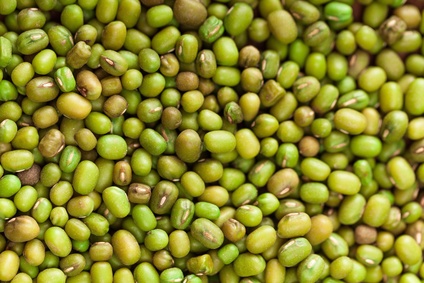Arkansas farmers hope to meet expanded EU sustainability requirements
by February 12, 2024 10:18 am 407 views

The European Union has expanded its crop sustainability reporting requirements, and agriculture stakeholders in Arkansas intend to be proactive in meeting those requirements. Some of those requirements include environmentally-friendly growing practices.
Soybean exports are a top concern. It’s the state’s most lucrative crop, worth more than $1.6 billion in 2023. Soybeans generated the highest export value for the state in 2021, bringing in $911 million, according to the Arkansas Agricultural Profile.
“The EU has become one of the largest importers of U.S. soy after China in the world, importing nearly 5 million metric tons of U.S. soy in 2023,” said Marty Matlock, professor of biological and agricultural engineering with the University of Arkansas System Division of Agriculture. “The U.S. is now the largest supplier of soy to the EU.”
Matlock met Jan. 31 with Jovita Neliupšienė, ambassador to the United States from the EU, for the “Crafting the Transatlantic Green Marketplace Trade and Technology Dialogue” in Washington, D.C. He co-facilitated with Matheiu Lamolle, senior advisor with the International Trade Center, a session titled “Empowering Transatlantic Collaboration: Enhancing Sustainability in the U.S. and EU Feed Sectors.”
Matlock said the discussions centered on better understanding of the sustainability outcomes from U.S. production of grains, especially soy and corn, that EU nations import for animal feed.
The challenge for U.S. soy producers is that the EU is expanding sustainability reporting requirements for eligibility for import to the EU market. The United States Soybean Export Council (USSEC) developed the Soy Sustainability Assurance Protocol (SSAP) in 2014 in anticipation of these challenges. For market year 2023 (September to August), 70% of U.S. soy exports globally were verified sustainable with the SSAP. That amount is nearly 45 million metric tons.
Matlock has worked with USSEC to develop measures and goals for U.S. soy sustainability since 2008. He received the United Soybean Board Freedom to Operate Award in 2015.
“Arkansas agricultural producers feed the world,” Matlock said. “We have to be engaged with the decision makers in agricultural trade around the world if we are to continue to grow a robust, sustainable and prosperous agricultural supply chain.”
About 3 million soybean acres were harvest in the Natural State in 2023, according to the United States Department of Agriculture. The Prospective Plantings report pegged U.S. soybeans at 87.5 million acres. The Acreage Report found 83.5 million acres. Yields in Arkansas are projected to set a state record. The projected yield of 53 bushels per acre is one bushel more than the previous record per acre set in 2021.
